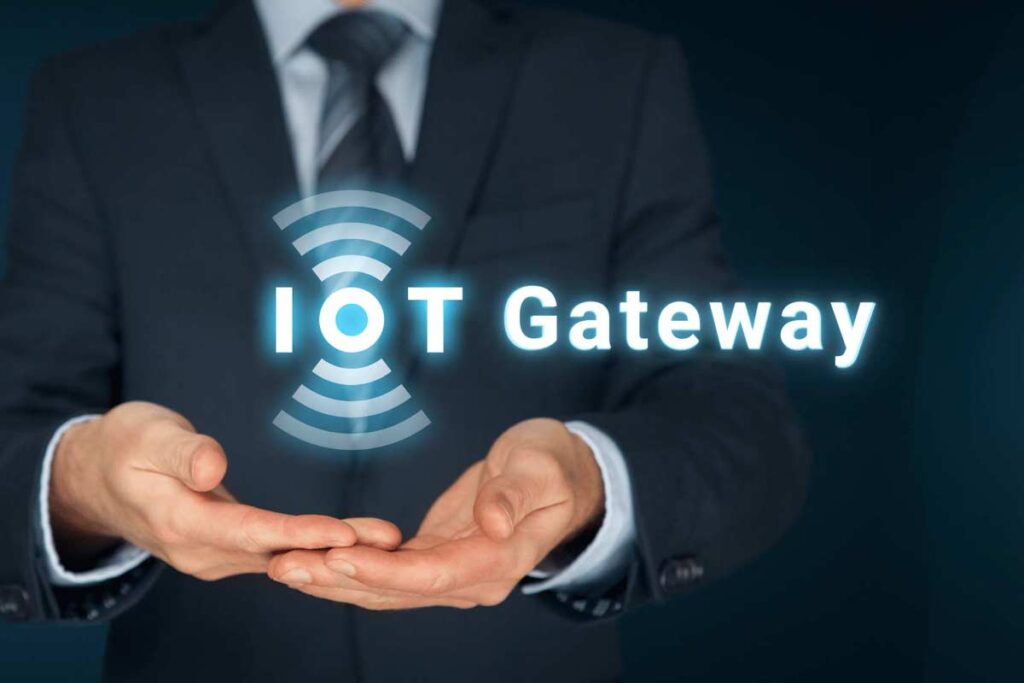Introduction
Smart connection is essential to revolutionizing our lives and companies in the Internet of Things (IoT) era, which is expanding at a rapid pace. The IoT gateway, a key element that facilitates smooth communication between devices and the cloud, is at the center of this network of linked devices.

The idea of an internet of things gateway, its features, advantages, and importance in influencing the development of IoT-based applications will all be covered in this article. If you’re interested in learning more about the functions of IoT gateways in our contemporary, wired society, keep reading to get a thorough knowledge.
Understanding the IoT Environment
Before we dive into the specifics of an IoT gateway, Having a thorough understanding of the IoT ecosystem’s larger context is crucial. The network of actual things, machinery, machines, automobiles, and other things that can connect and share data is known as the “Internet of Things.” These things are equipped with sensors and other software.
To increase productivity, user experiences, and make informed decisions, the data gathered from these devices is subsequently processed and evaluated.
Devices that collect data, process it, and transmit it to the cloud or other devices form the nucleus of this vast network. In order to provide smooth communication and safe data transfer between the various IoT devices and the cloud infrastructure, IoT gateways serve as a critical link in this chain.
What is an IoT Gateway?
IoT devices and sensors are connected by m2m sim card to the internet and cloud-based applications through a bridge called an IoT gateway. It serves as a bridge between the cloud and the neighborhood network of IoT devices, sometimes known as the “edge” devices.
The primary purpose of an Internet of things gateway is to collect, process, and transmit data from the edge devices to the cloud and vice versa.
This gateway is essential in helping IoT applications overcome a number of difficulties, including connection, interoperability, and data security concerns. An IoT gateway minimizes the quantity of data transported to the cloud, reducing network capacity, and enabling real-time data analysis by serving as a central hub for data aggregation and pre-processing.
Key Functions of IoT Gateway
1. Data Aggregation:
The data is conveniently consolidated for further processing by an IoT gateway after being gathered from several nearby edge devices and sensors. Data latency is reduced and reaction times are enhanced by this aggregation.
2. Protocol Translation:
Interoperability issues may arise because IoT devices frequently use several protocols to communicate. Internet of things gateways perform the role of protocol translators by transforming data from different forms to a single standard, facilitating frictionless communication between devices and the cloud.
3. Edge Processing:
It saves the cloud from handling massive quantities of raw data processing by carrying out fundamental data processing activities locally. Real-time decision-making skills through IoT management platforms are improved, and total data transmission costs are decreased, thanks to this edge processing.
4. Security:
IoT gateways are essential for maintaining the security and privacy of data. To protect sensitive data sent over the network, they might put access control, authentication, and encryption procedures in place.
5. Connectivity Management:
Internet of things gateways manage the connectivity of edge devices, ensuring stable and reliable communication between devices and the cloud. They handle network disruptions and choose the most efficient communication path to optimize data transfer.
Conclusion
The Internet of Things (IoT) gateway is a crucial connection that enables smooth communication between devices and the cloud in the quickly developing IoT age. The importance of the IoT gateway has been highlighted in this article as a means of addressing issues with connectivity, interoperability, and data security in IoT applications.
IoT for Business improves future growth where Internet of things gateways play a key role in boosting productivity, user experiences, and informed decision-making by collecting and processing data from edge devices, translating protocols, enabling edge processing, and managing connections. Understanding the significance and functions of IoT gateways becomes essential for embracing the possibilities of smart connection as IoT continues to transform our modern connected world.





